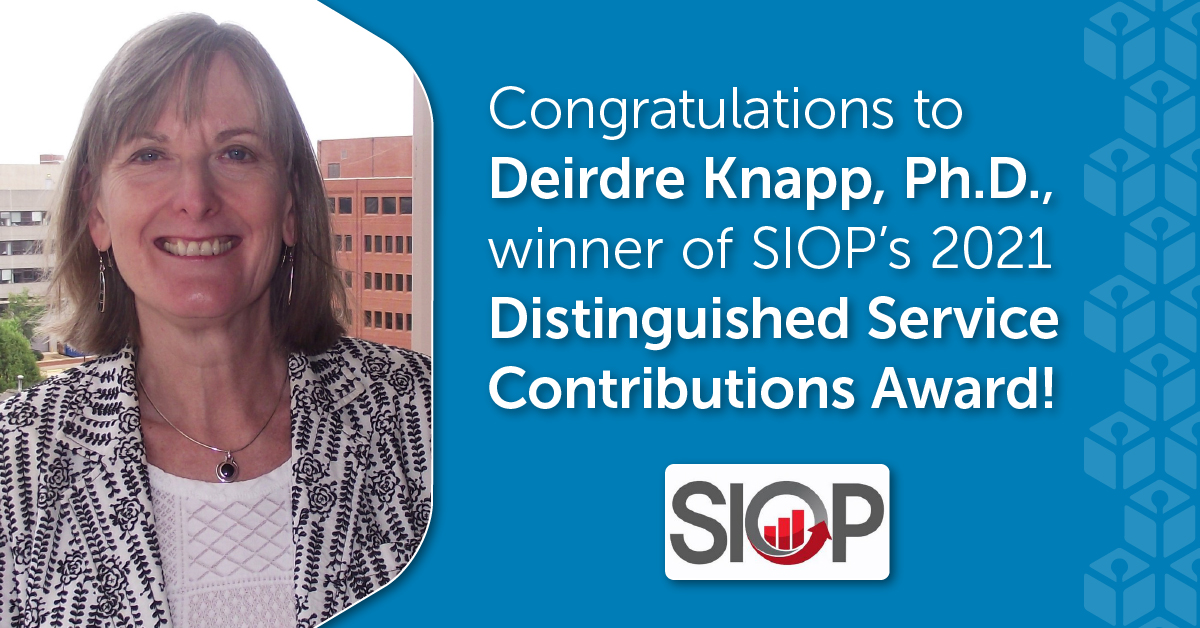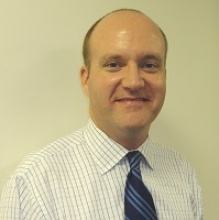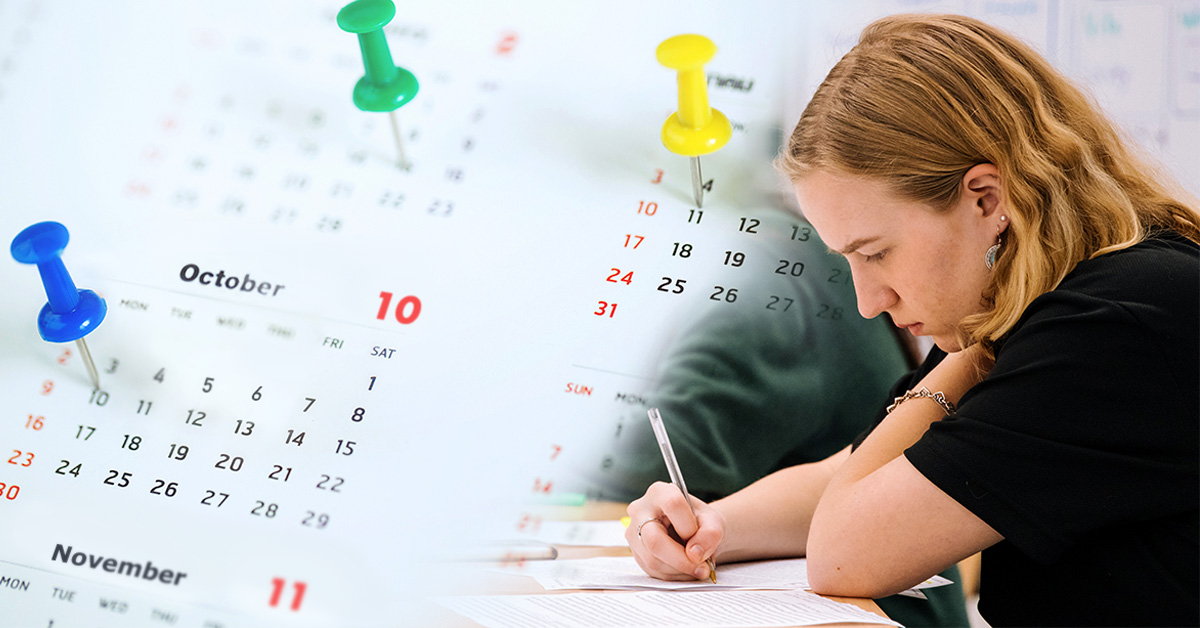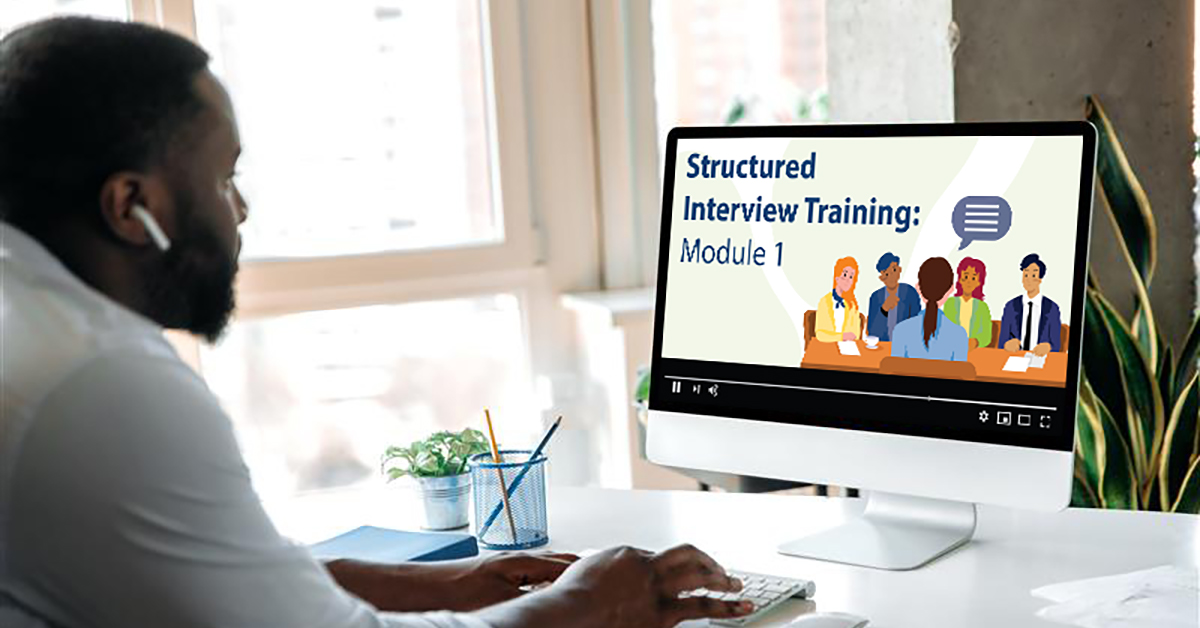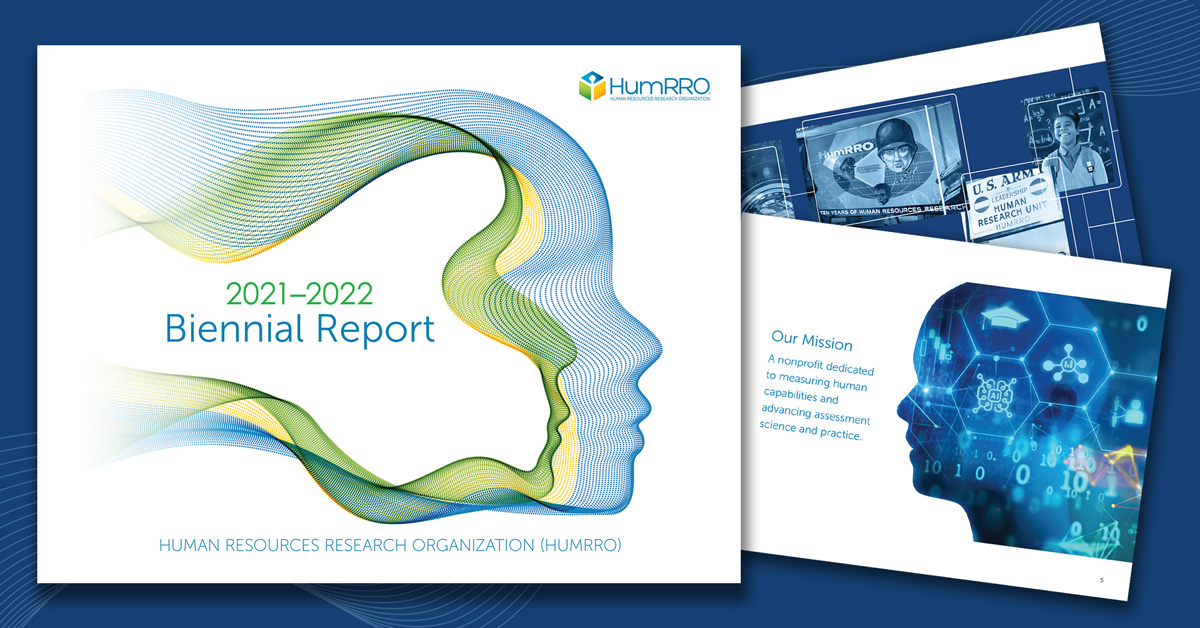By any measure, Deirdre Knapp, Ph.D., has had an extraordinary career since arriving at HumRRO in the late 1980s: Helping HumRRO gain a toehold in the credentialing arena, then leading and growing that line of business for decades; designing and managing extremely complex, large-scale validation, selection, and classification efforts for the U.S. Army Research Institute; serving as a corporate officer and vice president at HumRRO, where she now provides expert technical guidance and mentoring as a principal scientist.
Beyond these achievements, though, it is her dedication to professional service—and the way she both encourages and inspires that same spirit in others—that many of her colleagues most admire about Knapp.
The Society for Industrial and Organizational Psychology (SIOP) recently acknowledged Knapp’s unique legacy of service by honoring her with the 2021 Distinguished Service Contributions Award, which recognizes a member who has “provided sustained, significant, and outstanding service to SIOP.”
In response, HumRRO president and CEO Suzanne Tsacoumis, Ph.D., said, “For more than 20 years, Deirdre has selflessly donated her time, expertise, and passion for contributing to the profession. She truly embodies the ‘giving back’ spirit, and I can’t imagine anyone more deserving of this award.”
Doug Reynolds, Ph.D., executive vice president at Development Dimensions International (DDI) and a former SIOP president, served with Knapp on the SIOP Executive Board. “I have gained important perspective and tremendous value from working with Deirdre, both professionally and in service to SIOP,” he shared. “She is a master at creating strategy and structure in the face of ambiguity and at building trust. The field at large has benefited from her collaborative and diplomatic leadership.”
Despite the myriad ways that Knapp has contributed to the profession over the years, several common threads run throughout her record of service. These include representing the interests of the I-O psychology field to other groups, bridging differences, and encouraging collaboration, as well as a focus on ethical practice. Some highlights include:
- Serving as an elected officer on multiple occasions, including two terms as a member of the American Psychological Association’s (APA) Council of Representatives on behalf of SIOP, as president of the Society for Military Psychology, and as president of the Personnel Testing Council of Metropolitan Washington (PTCMW).
- Playing a lead role in bringing APA’s Ethical Principles of Psychologists and Code of Conduct to SIOP, including multiple activities to inform and educate SIOP members about ethical practice, ultimately leading to the formation of SIOP’s Committee for the Advancement of Professional Ethics (CAPE).
- Serving as the inaugural chair for three different SIOP committees—the Support, Planning, and Research Committee (SPARC), the External Relations Committee, and CAPE—including playing a lead role in developing each group’s charter.
- Chairing APA’s Policy and Planning Board, which is responsible for considering and recommending changes to APA’s current and long-range organizational policies and serving on two presidential work groups, one to recommend a process to integrate APA’s C3 and C6 status organizations and another to recommend changes to modernize APA’s bylaws.
Along with this incredible record of service, Knapp has provided years of talented, selfless mentoring to dozens of I-O psychologists, many of whom have reached leadership positions at HumRRO and other organizations. In that spirit, we close with some of her personal reflections about her service. We hope that she inspires others to give back in a way that reflects their own unique passion and talents like she has for many of us at HumRRO.
What has been your most meaningful SIOP service experience, and why?
Deirdre Knapp: This question makes me ponder what I’ve done that has made the greatest impact. While I’m proud of the part I played in SIOP’s evolution in the realm of advocacy, I think I made a more unique contribution in driving the establishment of the Committee for the Advancement of Professional Ethics. The ultimate proof will be in how effective CAPE is in continuing to advance its mission over time and after I’ve long since left it to others to carry on. That would be true impact and, therefore, tremendously meaningful to me.
What lessons have you learned through your service to SIOP?
DK: The most useful lessons I’ve learned through service have been associated with volunteering for and working with (as a consultant) multiple membership organizations. This has helped me gain a better understanding of how volunteer organizations can most effectively get things done and to avoid the narrow perspective that can promote an inward rather than an informed outward focus. I’ve made great progress in these respects over the years and so has SIOP as an organization.
What would you say to someone who wants to volunteer but is worried they don’t have the time to stay committed?
DK: It’s true that most of us can’t expect our paid and volunteer work to fit neatly into a consistent 40-hour per week schedule. That said, you will figure out how to make time for what is most important to you. I would also argue that what I call professional civic mindedness is a professional responsibility. That is, all of us have the capacity to make a difference in the profession of I-O psychology that goes beyond our day jobs, and I encourage you to think about how you could contribute. I think you will find that the time you spend will not only benefit SIOP or whatever other organization you are involved with but will directly benefit you both personally and professionally.
What would you suggest to someone who is unsure about where or how to start?
DK: Although SIOP has a large number of committees, there are also a lot of people interested in volunteering for them. So, register your interests every spring with the SIOP Volunteer System and don’t get discouraged if you don’t get invited to join a committee in the first year or two. Reach out to people already on various committees about your interest in getting involved. Networking and then doing a good job when given the opportunity for an assignment can go a long way to paving the way for future opportunities.
SIOP is not the only place you can advance the values SIOP embodies. It can be much easier to get involved in local I-O group activities. SIOP is always looking for I-Os to nominate for APA committees and task forces so that we can continue to demonstrate the value our perspective brings to the interests of “big” psychology. If you are (or are willing to become) an APA member and are interested in being considered for roles there, let me or one of your SIOP Council representatives know.
How has your professional service helped you in your “day job” at HumRRO?
DK: My professional service roles definitely helped groom me for my leadership roles at HumRRO. Early in my career, I got involved in organizations smaller than SIOP, which, as it turns out, made it easier to move up the ranks quickly. As an early career president of my local I-O group (PTCMW) and APA Division 19 (Military Psychology), I learned so much about what it means to work in concert with the energy of others, to identify how the group’s mission could be more effectively addressed and then make strides toward positive change. I took the leadership skills I learned to my work at HumRRO and to my future SIOP roles. Volunteering also exposed me to more types of people and new ways of working together. I also have to say, however, that my work at HumRRO, especially with client membership associations, has really helped me be a more effective volunteer in my own professional associations.

